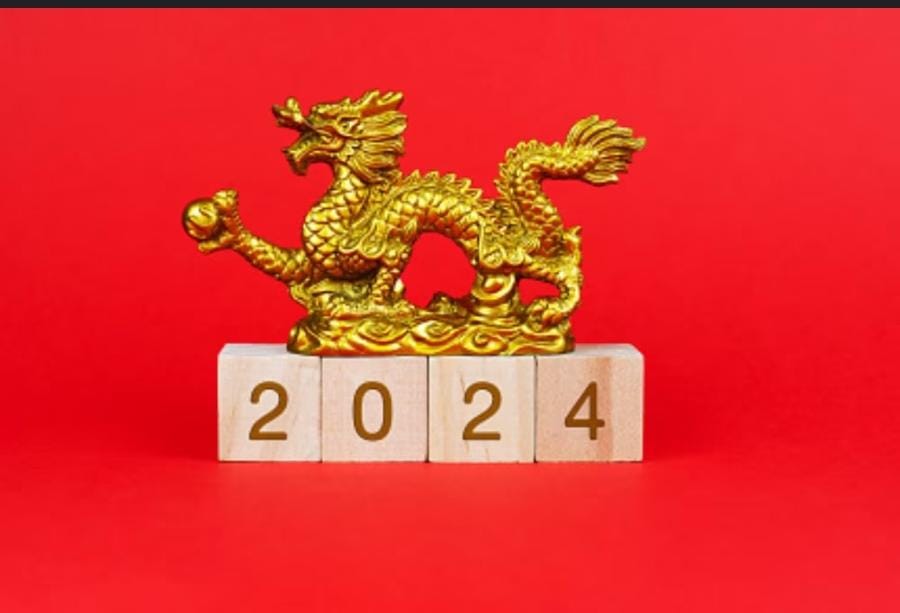Each year represents an animal, and as we step into February 2024, it brings an arrival to the Year of the Dragon. Know what it is.
In February 2024, people worldwide are gearing up to welcome the Year of the Dragon, which kicks off with the Lunar New Year celebration on February 10, 2024. This year’s Chinese zodiac sign, the dragon, is emblematic of power, magic, and the pursuit of one’s desires.
Following a twelve-year cycle, each year in the Chinese zodiac is associated with an animal and an elemental affiliation. In 2024, the dragon takes center stage, representing the element of wood.
Dragons hold immense cultural significance in Chinese folklore, symbolizing strength, wisdom, and good fortune. Those born in the Year of the Dragon are believed to be blessed with good luck.
The symbolism of dragons transcends China’s borders, with variations found in neighboring countries. Known as “nanga” in some places, “eagle” in others, and even “fish” or “crocodile,” the dragon symbol remains prevalent. Despite attempts to replace it with symbols like the giant panda during the Cultural Revolution, the dragon remains deeply cherished by the Chinese people.
As February bids adieu to the Year of the Rabbit, which symbolized longevity, peace, and prosperity in Chinese culture, anticipation for the Year of the Dragon grows. The previous Year of the Dragon in 2012 was characterized by Water Dragons. In 2024, the dragon’s energy fosters excitement and presents opportunities to pursue dreams. Here’s hoping that this year brings forth a plethora of positive experiences for everyone.
The Chinese zodiac operates on a twelve-year cycle, with each year corresponding to a specific animal sign in this order: Rat, Ox, Tiger, Rabbit, Dragon, Snake, Horse, Goat, Monkey, Rooster, Dog, and Pig. Each animal is believed to influence the personality traits and destiny of individuals born in that year.
Unlike the Gregorian calendar, which is based on the Earth’s orbit around the sun, the Chinese calendar is lunisolar, accounting for both lunar phases and the solar year. Consequently, the Chinese New Year falls on a different date each year.




